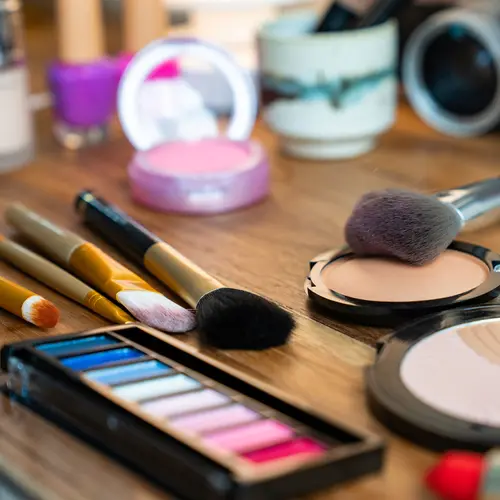Do you use hair color to highlight your locks, add a splash of hot pink or electric blue for fun, or change your look permanently? Many people do, and some wonder if it might affect their chances of getting cancer.
Some studies show a link between the chemicals in certain hair dyes and cancer. But they don’t prove that hair color was to blame. The risk is probably low in people who color their hair from time to time. If there is a risk, it’s probably higher for people who work with dye all day long, for darker colors, and for dyes that last longer.
Hair dyes made before 1980 contained some chemicals that were linked to cancer. Since then, companies have changed the chemicals they use to make their dyes. Yet there still may be a few ingredients in dyes that might be risky.
Chemicals in Hair Dyes
Most of the cancer risk is tied to dyes that color your hair permanently -- not the ones that wash out after a shampoo or two.
There are many different types of hair dyes, and they contain thousands of different chemicals. Ammonia, aromatic amines, and hydrogen peroxide are just a few of the chemicals that help the dye get into your hair shaft and change its color.
When you dye your hair, you absorb small amounts of these chemicals through the skin of your scalp, or you breathe them in. People who work with hair dye in salons and barber shops get more exposure to the chemicals in hair dyes than people who get their hair colored.
Some of the chemicals in hair dyes change the levels and actions of hormones like estrogen in the body. Hormones can help certain cancers -- including some breast cancers -- grow and spread.
What the Research Shows
At high doses, some aromatic amines cause cancer in lab animals. These chemicals can also make healthy human cells turn into cancer cells in the lab.
Human studies on hair dye and cancer risks are mixed. Some studies show an increased risk of certain cancers in people who work with or use hair dye. But other research didn't find a link. The strongest evidence is for bladder cancer.
Bladder cancer. Hairdressers and barbers who use hair dye on the job may be at slightly higher odds for bladder cancer. People who get their hair dyed don't seem to be at greater odds.
Blood cancers. Some studies show a slightly increased chance of non-Hodgkin lymphoma and leukemia in people who use hair dyes. The chance is highest in people who use darker colored dyes, which contain a higher concentration of chemicals, and in people who started dying their hair before 1980.
Breast cancer. Some studies have shown that hair dye might increase the risk for breast cancer, but others haven't. In the Sister Study from 2019, women who used permanent hair dye were 9% more likely to get breast cancer than women who didn't dye their hair. Another study found a 23% higher risk of breast cancer in women who used hair dyes compared with those who didn't.
The International Agency for Research on Cancer (IARC), which is part of the World Health Organization (WHO), reviewed the research on cancer and hair dye. It found some evidence that hair dye causes cancer in hairdressers and other people who use it at work. But the agency says there isn't enough evidence to prove these chemicals cause cancer in people who get their hair dyed.
What Should You Do?
The link between hair dye and cancer hasn't been confirmed. We need more studies to show whether there is a risk to people who get their hair colored. Experts say hair dye isn't likely to cause cancer on its own. Many different factors affect your odds, including your family history, gene mutations, diet, and whether you smoke.
Still, if you're worried about the safety of hair dye, you can use a vegetable-based color product. Natural dyes may not color your hair as well as chemical-based ones, but they might pose fewer risks.
During pregnancy, wait until after your first trimester to dye your hair. Doctors don't know what effect the chemicals in dyes could have on your growing baby.
Some people have an allergic reaction when they dye their hair. If you're sensitive to the chemicals in hair dyes, do a patch test before you use any new dye. Try out the color on a small patch of your hair to see if your skin reacts. Once you're sure that you aren't sensitive to the dye, then color the rest of your hair. Always wear gloves when you apply color to your hair.


